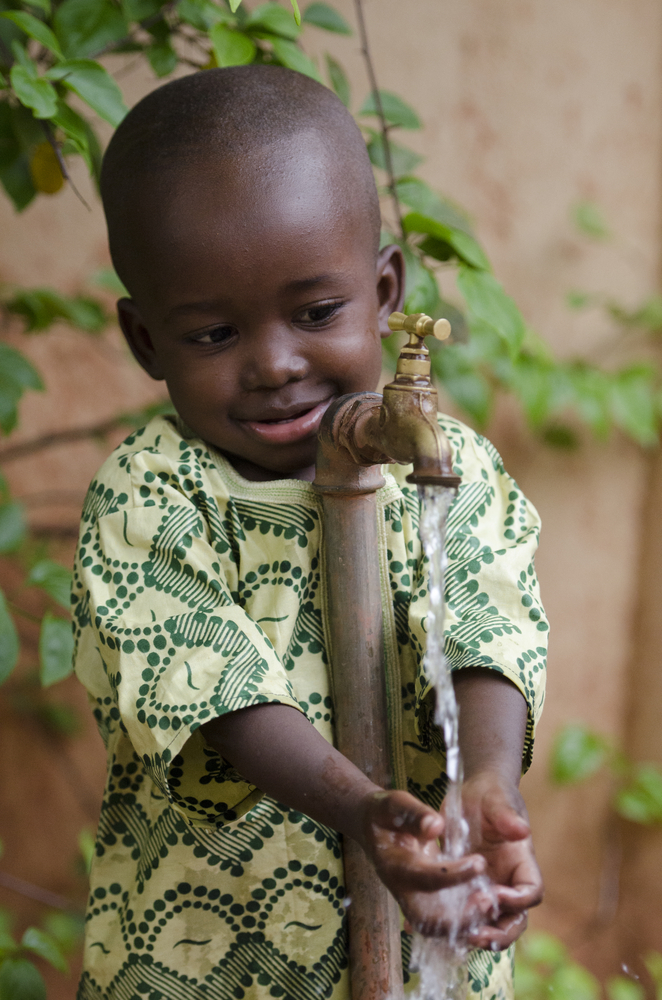Strengthening Capacity of Local Institutions to Drive Community-Centered WASH Service Delivery
Throughout all of December we will be sharing stories from our staff, board, partners, and others from around the globe. We can’t wait to share all of the hopeful, engaging, and positive stories from our work. We will be using the hashtag #IamPfD on Facebook, Twitter and LinkedIn.

Donate Now
Be sure to share the posts that you find engaging and inspiring with friends and family and don’t forget to donate and take an #unselfie of you making a donation and share it with us and use the #IamPfD for a chance to win prizes from PfD.
The CDC reports that improved water, sanitation and hygiene could potentially prevent 9.1% of the global disease and 6.3% of all deaths. Therefore, PFD and UNICEF –are teaming up in Nigeria to Strengthening Capacity of Local Institutions to Drive Community-Centered WASH Service Delivery. The project will help improve access to safe drinking water and improve sanitation facilities in three southern states of Nigeria.
 Less than 20 % of households in the three PFD target areas are using improved water sources and less than half of households in these areas have improved sanitation facilities (Nigerian Ministry of Health). Drawing from past experience working in Nigeria and implementing WASH programming in Cambodia, PFD will work with local organizations to empower communities through trainings and other tools to create sustainable improvements providing
Less than 20 % of households in the three PFD target areas are using improved water sources and less than half of households in these areas have improved sanitation facilities (Nigerian Ministry of Health). Drawing from past experience working in Nigeria and implementing WASH programming in Cambodia, PFD will work with local organizations to empower communities through trainings and other tools to create sustainable improvements providing
water, sanitation and hygiene (WASH) services.
Key to PFD efforts are two things: sustainability and integration.
Building a strong foundation is vital to sustainability. The foundation for this program: Community Water, Sanitation and Hygiene Committees (WASHCOM). PFD will work within local communities of six Local Government Areas (LGA) each in Delta, Edo, and Ekiti states to organize and empower 600 WASHCOMs through training, mentoring, and other methods. The training of trainers is a key part of building capacity to ensure sustainability. State level workshops will train project staffs and volunteers to facilitate the project interventions in their communities and continuous mentoring of trainees will allow for the internalization of their new skills. Additionally, by creating a forum in each community, community members will have a space to share and learn best practices for the implementation of WASH activities. The forums will also provide a foundation so each community can continue to address WASH problems and adapt to changing needs in the future.
Going forward, WASHCOMs will serve as a platform for integrated programing. With a community structure in place, PFD and UNICEF will be able to address different community needs, providing reproductive health and family planning messaging, a platform for community peacebuilding and social bonding, and trainings for facilitation.
We know that integrated programming works: PFD’s programs done in unison have proven to be far more successful together than they are alone. When PFD integrated breastfeeding and maternal health messaging into its microfinance program in Nigeria, researchers found the number of women who exclusively breastfeed their infants increased.
The key to these successful sanitation interventions is not just the visible infrastructure, but also the corresponding education and community awareness. Working in the isolated and underserved northeast region of Cambodia, PFD improved rural access to safe water and sanitation in a country where less than 30 percent of the rural population has access to safe water and less than 10 percent to adequate sanitation.
Essential to this process is working with and through local organizations – PFD’s modus operandi. By strengthening the capacity of local organizations and equipping local CBOs to manage the work it both increases the level of community participation and provides a foundation for local ownership. Within the water and sanitation programs in Cambodia, PFD integrated health, nutrition, and food security activities, recognizing the interconnected nature of development and the need a multifaceted approach.
Follow the links to learn more about PFD‘s programs in WASH and health, and our work inCambodia and Nigeria!

